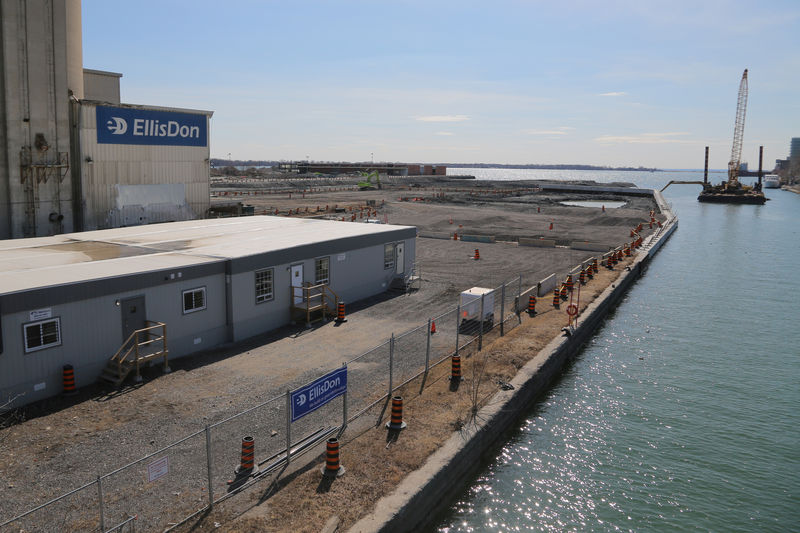By Moira Warburton
TORONTO (Reuters) - Details of the technological innovations planned for a futuristic development in Toronto recently provided by Sidewalk Labs are satisfactory to evaluate the project, an official of the government-mandated development agency told Reuters.
The evaluation by Waterfront Toronto, due to be wrapped up by March 2020, will look at the feasibility of the Alphabet (NASDAQ:GOOGL) subsidiary's proposals, which include plans for self-driving garbage cans and infra-red sensors to track foot traffic in stores.
Sidewalk released a 483-page document on Friday in response to criticism, including from an arm of Waterfront Toronto, that called the initial proposal "frustratingly abstract" and unclear about aspects such as data gathering and governance.
Kristina Verner, Waterfront Toronto's vice president of innovation, said on Monday Sidewalk's latest document did "a good job of satisfying the information we need for the evaluation" of the project in the Quayside area of Canada's largest city.
She added gaps in information are "understandable" at this stage, citing the timing of the project and the fact that all vendors have not yet been identified. To win approval, the size of the project was shrunk from Sidewalk's originally planned 190 acres to 12.
Some solutions "will no longer have the capacity or the financial justification" to be implemented, Verner said, pointing to proposals to create a vacuum waste system and build new energy infrastructure in the Quayside area.
"Those only make sense at a certain scale, so we need to determine which ones of those are dramatically impacted by only being 12 acres," Verner said.
Sidewalk acknowledges that all of its tech proposals may not be feasible, but believes it can "finalize an innovation plan that is both workable and transformative," Keerthana Rang, spokeswoman for the company, said in an emailed statement.
Sidewalk has said that more details would be forthcoming if the project is approved in March.

Jim Balsillie, a major Canadian tech entrepreneur and vocal critic of the Sidewalk project, told Reuters the latest document was "another step in an ongoing obfuscation by Sidewalk."